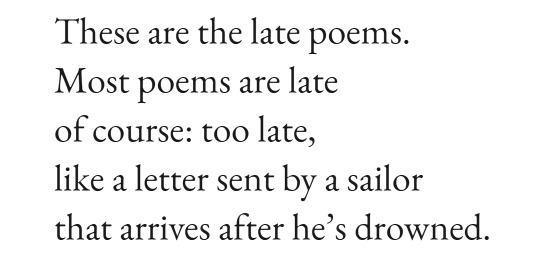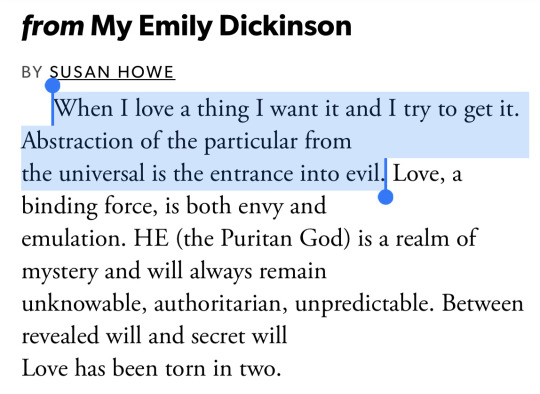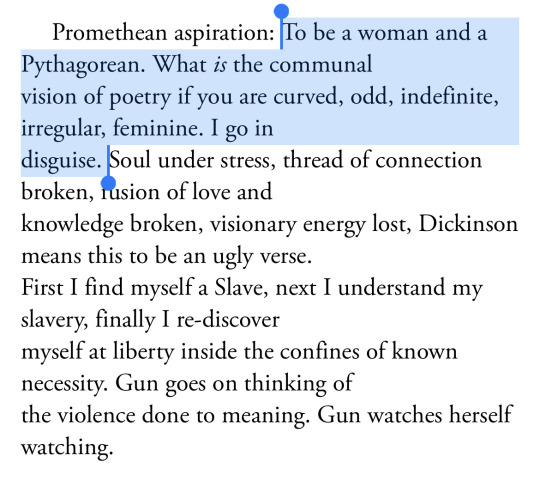“There was the day when I began to doubt man's sanity: how could he live without knowing for sure what dawn, what death, what doom awaited consciousness beyond the tomb?��
Don't wanna be here? Send us removal request.
Text
A Cold Night//Dale Cooper x Reader
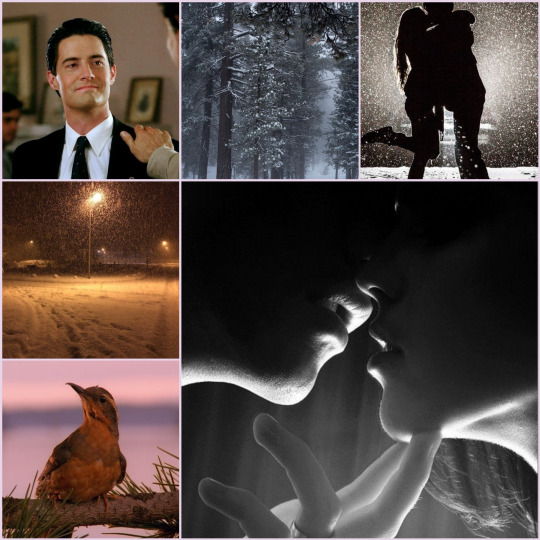
A/N: Requested by @super-who-dat, I love you and I’m so sorry for making you watch all of Twin Peaks lmao <3
The Twin Peaks Sheriff Department’s annual Christmas party was in full swing even though this year the festivities looked a little different. This year Lucy was drinking hot cocoa instead of Harry’s traditional spiked eggnog as she stood with Andy near the mistletoe, her unironically ugly Christmas sweater just barely starting to hug her baby bump. Harry, however, was on his third glass of eggnog already and laughing merrily at something Hawk said to him instead of his usual act of taking a handful of Christmas cookies and wishing everyone a good night and heading off into the night. But most unusual this year were the new guests in Twin Peaks. Albert Rosenfield sat in the corner with Denise, scanning the room over and over while making fun of everyone’s Christmas sweaters and sniffing the eggnog suspiciously while Denise shook her head, well used to Albert by this point. The only person missing was the one you cared the most about seeing.
Special Agent Dale Cooper of the FBI.
He’d said he’d be here when you’d asked him earlier, a suspiciously huge grin on his face as he looked at you and said he couldn’t wait to see you tonight. Yet an hour into the party he was nowhere to be found. You tried to ignore your disappointment, it was probably silly to take his word so seriously when you’d only known the man for two weeks but in those two weeks he’d managed to make a lasting impression. Even with all the awful things that had been happening in Twin Peaks over the last few weeks, the police sketch you’d done of Bob still hanging around town and burned fresh into your brain forever, meeting Dale seemed to out way most of that. He was like a ray of warmth in the dark, cold Twin Peaks winter.
“Looking for someone?”
You choked on your hot chocolate for a second, looking over at Denise who’d suddenly appeared next to you, a sly, knowing grin on her face.
“I don’t know what you’re talking about.” You tried to play dumb, looking over at where Harry had wrapped his arm around Albert. Someone definitely should cut him off about now.
Denise laughed, “You know I interrogate people for a living right?” She smirked, making you shake your head. “You know it’s none of my business but I have to say, one thing I’ve learned? Life’s too short for regrets.” She offered you a soft smile.
You looked at her, trying not to blush. There was no way she could know about your feelings for Dale. Could she?
Seeing your surprise Denise laughed, “I’m rambling though. You know, I think Cooper is outside. Maybe you should go tell him to join the party?” She winked, walking off and leaving you standing there suddenly feeling very flushed in your thick sweater.
‘Maybe some cold air would help cool things off a little?’ You thought, slipping silently out of the party unnoticed and out into the cold night air.
It was well after dark, the sky black with only a few lonely stars dotting the seemingly endless backdrop. The lights from the building and the few street lamps in the parking lot were the only real lights that allowed you to see your breath in the air in front of you. You shivered, wrapping your arms tightly around yourself. Maybe you should have gone back for your coat?
“Cold?”
You jumped, whirling around to see Dale sitting on the front steps of the building, looking up at you with a tired grin on his face.
“Geeze, Dale!” You laughed, clutching your heart as you lowered yourself down to sit next to him.
“I apologize, I didn’t mean to frighten you.” He blushed, or maybe that was the cold making his cheeks so pink.
“That’s okay.” You smiled softly to him, bumping his shoulder with yours to reassure him it was fine. “What were you doing sitting out here in the dark?”
“I guess I didn’t feel much like a party.” He tried to sound cheery but his smile started to fall. “I got a call from Gorden this morning, I’ve been given a new assignment.” His eyes were sad as he looked over at you, gaging your reaction but you had suddenly found your shoes to be of great interest.
“Oh,” was all you said, “Well, I suppose you really can’t stay in one place forever.”
“Y/N,” Dale placed his hand on your shoulder, making you look up at him, “If I could, I’d never leave…Twin Peaks that is.” He added quickly. “This won’t be forever. I’ll be back.” He said just as much to reassure himself as to reassure you. His eyes glanced at your lips then back into your eyes. “Y/N…” He trailed off, his hand stroking your shoulder with his thumb.
You shivered again, but not from the cold this time.
“Oh!” Dale quickly began to shed his long black coat, remembering that you must be cold. He didn’t hesitate to shed the garment and wrapped it securely around your shoulders, pulling it around you. “There, that should help.”
You could have objected, worried that he’d just get cold now but the wool coat was toast warm wrapped around you and smelled like his cologne, something you’d miss more than you wanted to admit when Dale Cooper left Twin Peaks almost just as quickly as he’d appeared. “That reminds me, before I forget,” You started, reaching back behind you for your bag you’d brought with you. “I have something for you.”
You could feel Dale’s blue eyes watching you intently as you fished around in the bag and brought out a thin, neatly wrapped package for him. Dale grinned like you were handing him a bar of gold. He took it from you carefully, reaching for the top seam of the wrapping paper before pausing and looking up at you with a broad grin.
“Y/N, while your presence tonight is a gift enough, thank you for this, I love it already.” He gestured to the package, making you roll your eyes, “Just open it already.” You chuckled.
Dale didn’t need any further prompting before he tore off the paper and saw it was a vanilla envelope with “Twin Peaks Sheriff’s Department,” stamped on the top. Dale laughed at it, giving you a wink, he tossed it open and stopped immediately. You bit your lip nervously watching as Dale’s grin fell and his jaw dropped. Ever so gently he stroked his fingers over the painting you’d done of the woods around Twin Peaks. Beautiful green Douglas Fir trees covered the page, each with carefully drawn needles and peppered between their branches were small, slightly misdrawn birds, a Bewick’s Wren specifically as you’d heard Dale raving to Harry about how beautiful they were. You’d lived here your entire life and didn’t even know what they were named until Dale had asked you about them.
“I know you said you’d never seen anything like the trees here,” You started nervously, “This way you have a little piece of Twin Peaks you can take with you.”
Dale sat there quietly, still running his fingers along the painting carefully, feeling the texture of the paint under his fingertips.
“Dale…say something.” You breathed nervously.
“Y/N, I-” Dale looked up at you with tears glistening in his eyes. He swallowed them down, “This is the most wonderful thing anyone has ever given me.” He shook his head, glancing back down at the painting, “You really made this for me?” He smiled at you softly, almost not believing it which made your heart twinge a little because someone as kind and wonderful as Dale Cooper deserved the whole world twice over but your painting had moved him to tears. You wanted to say all of this to him but the words wouldn’t come so you nodded your head, reaching out and covering his hand with yours, giving him a light squeeze.
You took a deep breath, “I’m going to miss you Dale.”
Dale looked up at you, his crystal blue eyes staring into yours. He looked between your lips and your eyes, pausing for a moment as he heard you take a deep breath.
“Y/N, I have to confess, it’s not just the town that I’m going to miss.” He said softly, leaning forward slowly enough that you could move away if you wanted.
You sat still as a stone, just barely moving your head forward until your lips were ghosting over yours. His hand cupped your cheek, stroking your skin smoothly as he kissed you more passionately. Your arms wrapped around his waist, pulling him closer to you as you sat as close to each other as possible. Neither of you knew how long you stayed like that until, “Uh, sorry to interrupt.”
You and Dale broke apart quickly making Denise and Hawk smirk from the doorway where they poked their heads out.
“Dale, you’d better get back in here. Albert tried to argue with Andy that there’s not a Santa Claus and I think Harry is going to kill him.”
Dale sighed despite still having a painfully wide grin splitting his face from ear to ear. “I’ll be right there.” He said, his hand still on your face and your arms wrapped around him.
Denise and Hawk gave each other knowing smirks before retreating back inside the building leaving you and Dale back in your own dream world you had created with each other in the snow. You could feel your cheeks begin to hurt from smiling yourself.
“I need to go back inside.” Dale whispered to you, slowly taking your hands and standing.
“Is it really such a bad thing if Harry kills Albert though?” You ask, moving to pull off Dale’s coat and hand it back to him.
Dale throws his head back laughing, “That depends entirely on who you ask.” He chuckles, taking your hand gently in his and leading you back into the building and out of the cold night.
224 notes
·
View notes
Text
“He had the obscure sensation of everything being suddenly turned the other way round, so that he had to read it all backward if he wanted to understand. It was a sensation devoid of any pain or astonishment. It was simply something dark and looming, and yet smooth and soundless, coming toward him; and there he stood, in a kind of dreamy, helpless stupor, not even trying to avoid that ghostly impact, as if it were some curious phenomenon which could do him no harm so long as this stupor lasted.”
— Vladimir Nabokov, Laughter in the Dark (trans. Vladimir Nabokov)
29 notes
·
View notes
Text
“The soul is undiscovered though explored forever to a depth beyond report.”
— Heraclitus, Fragment 45
1K notes
·
View notes
Photo
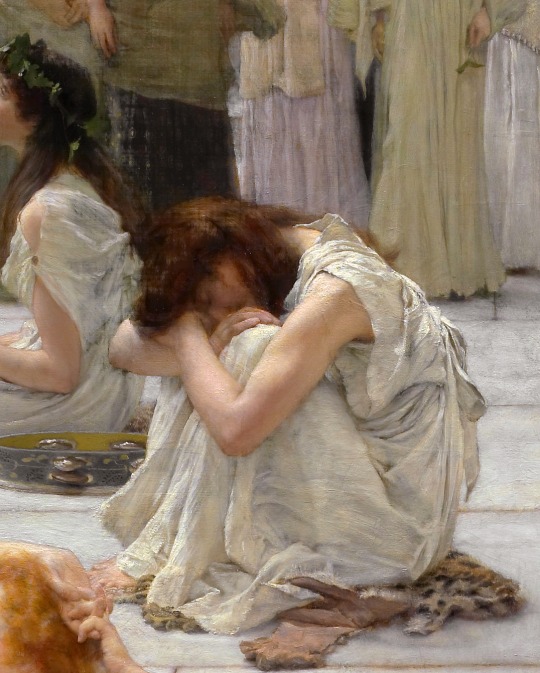
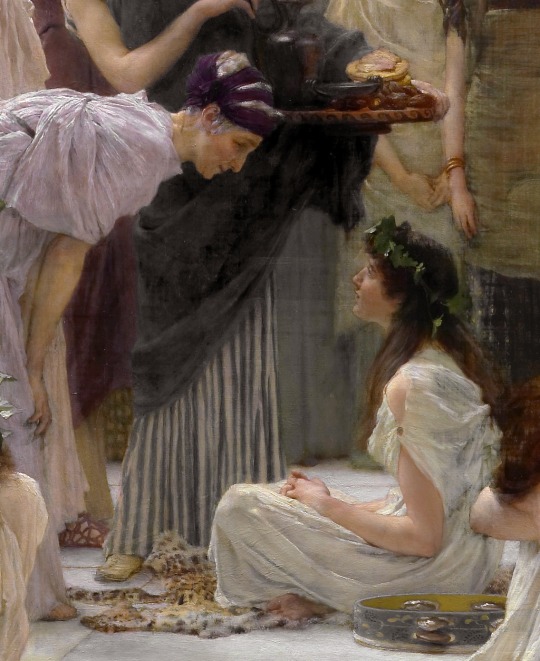
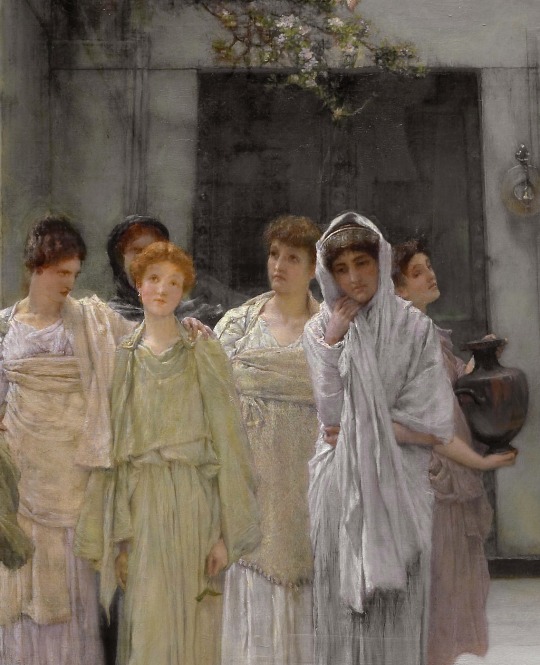
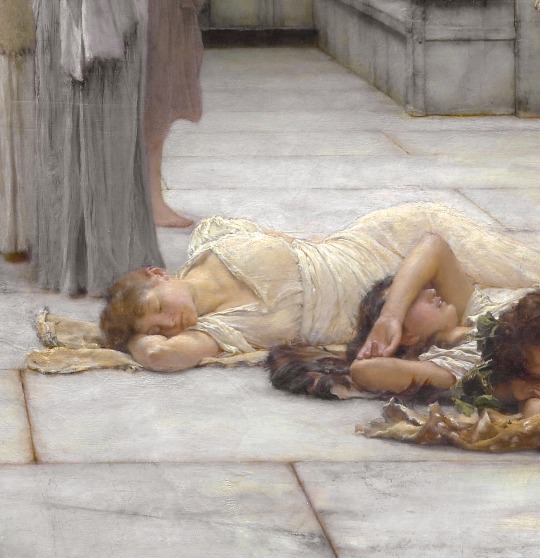
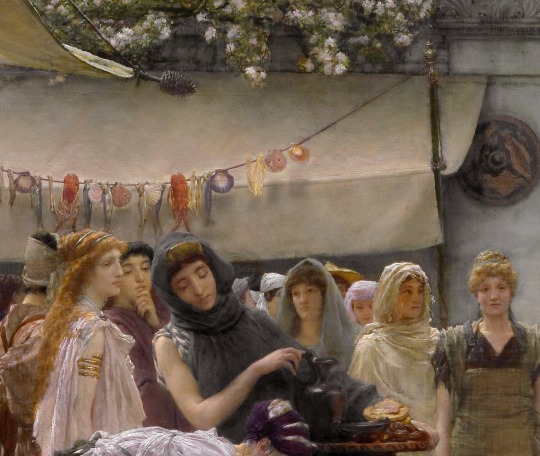
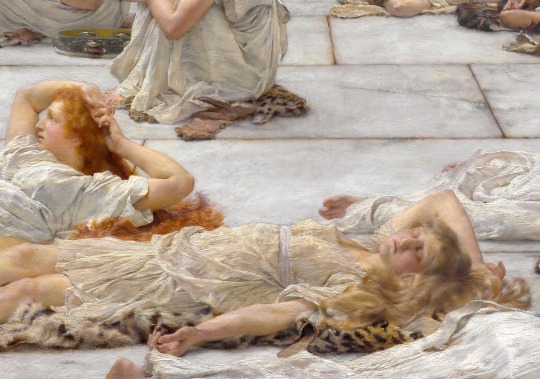
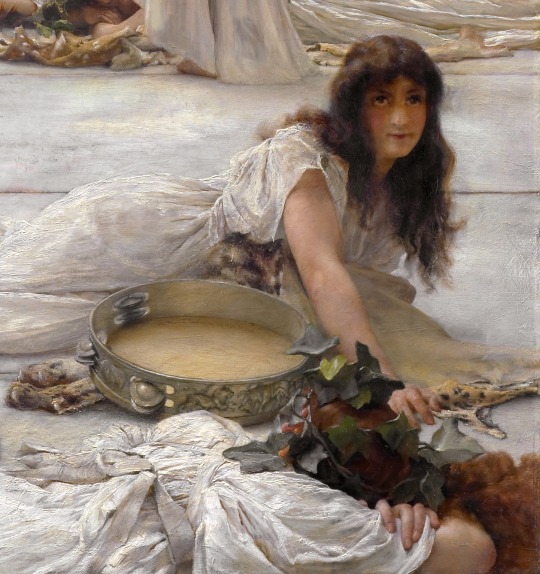
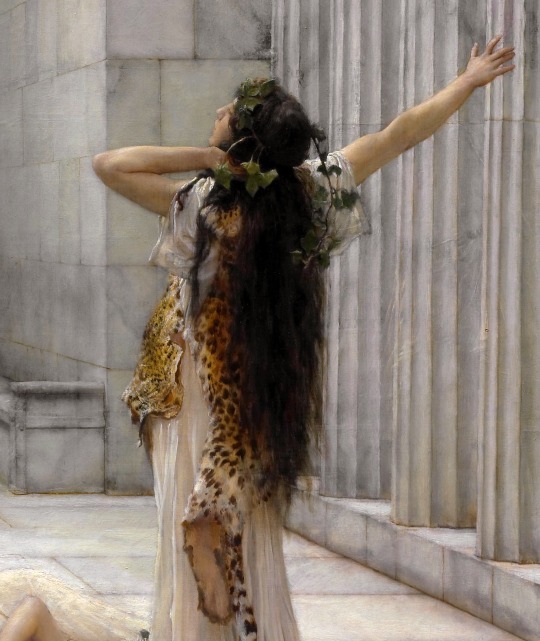
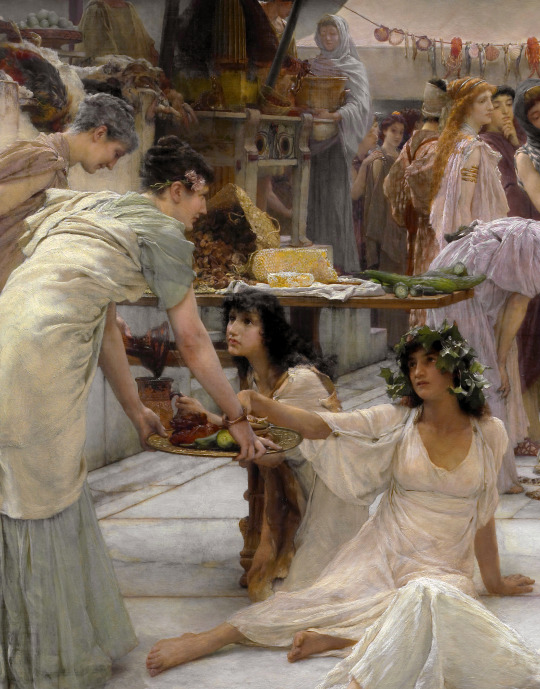
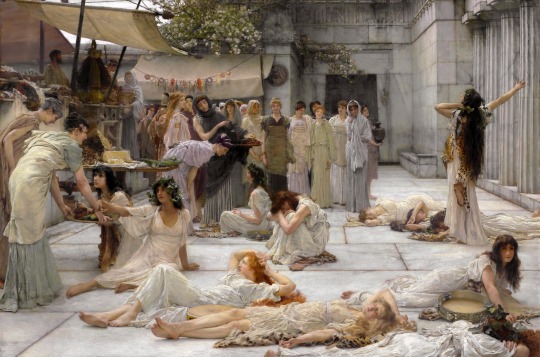
The Women of Amphissa (1887) by Sir Lawrence Alma-Tadema (1836–1912)
4K notes
·
View notes
Text
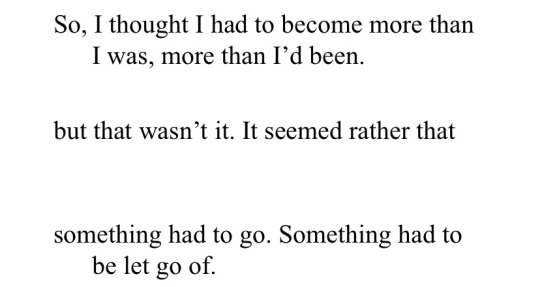
Marie Howe, from Magdalene: Poems; "The Teacher"
Text ID: So, I thought I had to become more than / I was, more than I'd been. / but that wasn't it. It seemed rather that / something had to go. Something had to / be let go of.
8K notes
·
View notes
Text
“There is no criterion of truth outside of the witness of truth itself, and it is wrong to seek absolute guarantees, which always demean the truth. Such is the consciousness of man, at the border-line between two worlds.”
— Nikolai Berdyaev, Truth and Revelation
63 notes
·
View notes
Text
“I know I should be grateful to the many translators and scholars who have lent their time to Eibhlín Dubh’s work — if it weren’t for such acts of attention, her words may never have reached me — but a selfish part of me itches to despise them, and to curse their rickety translations. Having listened to every cover version, not only do I feel certain that no one could ever be as devoted to her as I am, but I find myself wanting to sing, too. I know how unqualified I am to attempt my own translation — I hold no doctorate, no professorship, no permission-slip at all — I am merely a woman who loves this poem. The task of translation itself, however, does not feel unfamiliar to me, not only due to translating my own poems, but because the process feels so close to homemaking. In Italian, the word stanza means ‘room’. If there are times when I feel ill-equipped and daunted by the expertise of those who have walked these rooms before me, I reassure myself that I am simply homemaking, and this thought steadies, because tending to a room is a form of labour I know that I can attempt as well as anyone.”
Doireann Ní Ghríofa, A Ghost in the Throat
115 notes
·
View notes
Text
“The question “What is a word really?” is analogous to “What is a piece in chess?””
— Ludwig Wittgenstein, Philosophical Investigations
153 notes
·
View notes
Text
“Thinking back to Sara Ahmed’s (2006) Queer Phenomenology, we can start by thinking about the objects and furniture that make the reading possible: a chair or couch with particular upholstery and cushioning, perhaps a coffee table or a carpet where our feet rest. If it is daylight, the relative conditions of the sun passing into the room through windows creates a certain mood (we might need to reverse the directionality of the pathetic fallacy here). If that light is not sufficient for our primary ocular capacities, we light candles or turn on lamps. There might be music playing—some Ornette Coleman, or Brahms, or Brian Eno, or Sunn O)))—or the so-called “ambient noise” might recede from conscious attention or press in on consciousness. Perhaps there is the sound of birds or crickets or barking dogs, or a hum from electrical appliances. The room will have a temperature, which might make you more or less aware of the relative weight of your clothing. You might need a blanket, or to remove a sweater. I’m imagining, of course, conditions in which we—by we, I mean academics mostly—have control of such things, and the enumeration so far has been idyllic. For our students, and for us, things can be more hectic: the blaring of the stereo, the flickering of multiple lcd screens, yelling children at home or peers in the residence halls, traffic sounds, fighting neighbors, gunshots. The room might smell like freshly baked bread, or patchouli incense, or body odor that accumulates with heat, or the noxious pollution caused by a factory down the road. Although generating such lists has become a methodological principle in some versions of posthumanist theory, the point I want to make here is rather straightforward: a literally infinite set of agencies appears around the edges of any scene of reading, and they are part of that scene. All of that—the smells, sounds, sensations, tastes, visions—enters into the perceptual system, and while a very disciplined reader can subtract out a lot of it to get caught up in or carried away by the book, all of us know what it’s like to have our attention split and dispersed. The attention required for literacy events is, then, a question of a subtractive relation to the totality of what is perceived by a body as it, even if sitting still, exists in a rush of agentic movement of things that always affect that body, and in affecting it, shift its affects. The list of affects associated with reading requires, again, a litany.”
— Nathan Snaza, Animate Literacies
32 notes
·
View notes
Text
"[Capital] usurps the time for growth, development, and healthy maintenance of the body. It steals the time required for the consumption of fresh air and sunlight. It higgles over a meal-time, incorporating it where possible with the process of production itself, so that food is given to the labourer as to a mere means of production, as coal is supplied to the boiler, grease and oil to the machinery. It reduces the sound sleep needed for the restoration, reparation, refreshment of the bodily powers to just so many hours of torpor as the revival of an organism, absolutely exhausted, renders essential. [...] Capital cares nothing for the length of life of labour-power."
- Karl Marx, "The Struggle for the Working Day", Capital vol. 1, 1867
3K notes
·
View notes
Text
“There is a disturbing etymological puzzle underlying the title. “Contagion” appears to be a late fourteenth-century coinage, appearing in the wake of the Black Death in mediaeval French and Middle English, from the Latin roots “con,” meaning “with,” and “tangere,” the active verb “to touch.” The puzzle comes from another word we associate at least equally closely with electronic media, “contact.” Here the root words are the same, with the only exception that “contact” comes from the passive form “tactum,” “to be touched.” Oddly, most people probably feel positive connotations about “contact,” but negative connotations from “contagion.” We have had six hundred years to develop these connotations, and yet there remains a nub of their origins: the contagious principle of something coming to touch us or to touch us together is more subjective than the principle of contact, where any two things could be brought together. The usefulness of the electrical contact as a major metaphor, dating back through early electrical experiments and familiar from the literature of the pioneering days of motoring and aviation, gives it both a certain objectivity and a sense of familiarity that we bring into the realm of communicative contact. Not so contagion, even though it is very close, at least etymologically. The spark that leaps across the spark plug or the telegraphist’s key has given us a metaphor of life since Mary Shelley’s Frankenstein, and in that same moment opened up the contact to contagion, a reversal of perspective that reveals, as Parikka emphasizes, the contagion in every contact, the toxic active in every passive. “Something there is that doesn’t love a wall,” as Robert Frost observed. Something sees the structural forms on which communication depends as a barrier too many, a taxonomic frontier between orchard and pine, in Frost’s poem, that might as well divide on any arbitrary or lethal imaginary line, or indeed sender from receiver, signal from channel, signal from noise. To put in touch is to infect, and so we put in place immunological barriers, which are not merely hygienic but apotropaic. The very structures we create to enable communication are themselves barriers to communication. Yet if we want to touch the world, we must be touched by it; and when we touch, the world presses back; and that mutual pressure, that mutual permeation, is communication, and involves us opening up, and therefore taking risks. In the fury and the mire of human and nonhuman life, history is an afterthought: a post hoc rationalisation. In the midst of things, in medias res, in the daily operations of media and mediation, there is no such teleology, only the battering of the need to communicate and the barriers that the very act of communication throws in its way.”
— Sean Cubitt, Preface to Digital Contagions
19 notes
·
View notes
